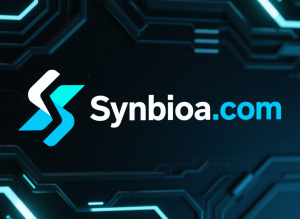
SynBioA is a portmanteau combining SynBio (short for Synthetic Biology) and the letter A. While the term is not explicitly defined in public literature, its potential meaning can be inferred based on synthetic biology’s technical evolution, naming conventions, and contextual analysis.
I. Etymology and Hypothetical Definitions
- SynBio (Synthetic Biology):
- A discipline focused on designing or reengineering biological systems through engineering principles, covering gene editing, metabolic engineering, and artificial life design. Its core goal is to “create or modify biological systems to solve real-world problems.”
- Possible Meanings of “A”:
- Applications: Specific use cases in healthcare, agriculture, energy, or other industries.
- Automation: AI-driven or robotics-supported synthetic biology platforms.
- Association: A consortium or cross-disciplinary collaboration (e.g., SynBioA Alliance).
- Agriculture: A subfield targeting agricultural bioengineering (e.g., crop optimization).
- Advanced: Cutting-edge synthetic biology technologies (e.g., next-gen SynBio tools).
II. Technical Scope
Drawing from synthetic biology’s trends, SynBioA may represent the following directions:
- AI-Augmented SynBio:
- Integrate machine learning and automated experiments to optimize genetic circuit design.
- Example: Ginkgo Bioworks’ AI platform for high-throughput strain screening.
- Agricultural SynBio:
- Engineer microbes or crops for stress resistance or nitrogen fixation.
- Example: Pivot Bio’s engineered microbes replacing synthetic fertilizers.
- Automated Biofoundries:
- Robotic systems for DNA synthesis, assembly, and testing to accelerate design-build-test cycles.
- Example: Earlham Institute’s cloud-based lab platform.
- Application-Oriented SynBio:
- Develop solutions for industrial needs like biofuels or biodegradable plastics.
- Example: LanzaTech’s ethanol production from steel mill emissions.
III. Industry Case Studies
- SynBio4Flavours (EU Project):
- Applies synthetic biology to food flavor production, akin to SynBioA’s vertical specialization.
- Ginkgo Bioworks (Platform Company):
- Offers modular bio-design tools, resembling SynBioA’s potential as a technical platform.
- Zymergen (Product-Centric):
- Develops engineered microbes for specialty chemicals, aligning with SynBioA’s application focus.
IV. Challenges
If SynBioA represents an emerging technology, key challenges include:
- Standardization and Predictability: Compatibility issues among biological parts hinder complex systems.
- Ethics and Biosafety: Environmental release risks of engineered organisms (e.g., gene transfer).
- Scalability: Cost control and process stability during industrial-scale production.
V. Future Directions
Guided by synthetic biology’s frontiers, SynBioA may focus on:
- Carbon Neutrality Solutions: Design carbon-capturing microbes or photosynthesis-enhanced crops.
- Bio-Electronic Hybrid Systems: Develop biosensors or biocomputing components.
- Cross-Disciplinary Innovation: Merge with materials science and nanotechnology.
Conclusion
SynBioA could signify an emerging branch, consortium, or platform in synthetic biology, aiming to solve industrial or environmental challenges through engineered biological systems. While its definition remains fluid, its potential lies in advancing biomanufacturing from lab research to scalable, commercial solutions.
If you are interested in purchasing this domain, please contact: chuanchuan810@gmail.com





